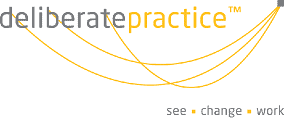Feeling restless, unfulfilled, or dulled out in your work or career and living a life of profound emptiness? Do you stay where you are, despite being in a bad situation and maybe you have thought about changing careers or jobs for a long time but can’t find the momentum, overcome with fear of change? You’d like to build up experience in an area you want to shift into, but you don’t get invited to interviews and have stopped trying. You perceive there’s less stress and anxiety to remain where you are, than to start something new. You are not alone.
This stagnant state where you feel stuck is often called career inertia. Despite a desire to change, many of us do not mobilize into action, or give up prematurely when trying to realise our career desires. This keeps us feeling dissatisfied and can have significant consequences on our health and wellbeing. Feelings of burnout, diminished productivity, loss of concentration and other counterproductive work behaviors and career limiting beliefs creep in. Is this how you want to function?
Imagine then, if you could change the trajectory of your life? To do this requires understanding and seeing clearly, what may have launched you on your initial path, understand the lasting power of those forces and then understand what it will take to gain control of those forces. Like an asteroid plunging through space, our current life inertia is highly resistant to change because of the great forces that put us on our path in the first place.
Career inertia and its interaction with fear
In the 2019 Academy of Management Review, ‘When people don’t realise their career desires’ Authors Marijke VerBruggen and Ans De Vos highlighted that most of us cannot explain our inaction because implicit, internal human processes are at play without us being aware of them. Certainly, contextual on the job and off the job elements may further exasperate the inertia but highlighted how difficult decisions or unclear outcomes can attract negative feelings of fear, often accompanying any directional shifts in life. While it is very normal to fear the unknown, risk, uncertainty of a new job, or a new organisation, fear can keep us from taking the leap into the next phase of our life, inhibit us from taking any action and keep us stuck in the status quo, even when unfulfilled.
The prospect of change can feel less tangible than our current circumstances, so negative feelings are heightened by the uncertainty of success or the idea of taking a risk. We may focus on the disproportionate influence of short-term costs over potential long-term gains, avoiding the effort, discomfort, and potential risks. This is our natural way to reduce negative feelings. At the same time, the cognitive effort associated with career change can test our limits to interpret and process information and have a paralyzing effect in an unconscious attempt to lower the cognitive demands. These inertia enhancing mechanisms come from fear and anxiety, – automatic human processes.
While it can be hard for us to explain or justify our inaction, inaction can lead to regret and self-blame and damage our self-image. When we fail in overcoming inertia, we can begin to believe that the opportunity has passed us and ruminate over our inaction despite the opportunity to do so.
Whatever the fear is, (be it fear of failure, rejection, of what others think, of losing progress professionally or financially, or of making the wrong choice), identifying what is holding you back is key in mastering fear so that you can realise your greatest ambitions. Common fears also include regretting our decisions or making the wrong choice, fear of letting go of everything that you have worked so hard for in your current career or workplace, where you have accumulated invaluable experience, established meaningful relationships, and climbed your way up. To lose this progress can be daunting. You may worry, you will not transition quickly enough to fulfil the responsibilities of your new role. To feel out of your comfort zone in any new position is just part of the process as you find your feet.
Getting on the front foot of fear
Veronica Roth, “Fear doesn’t shut you down, it wakes you up.” Fear can be managed and mitigated. If you want to free yourself from the trajectory of your old life then it’s important to recognize your fear, and make friends with it, so that you can liberate yourself from the forces that propelled you in the wrong direction or to one of inaction.
There are countless examples of high-profile people, who, have battled with fear and imposter syndrome, yet pushed forward in order to accomplish wonderful things and achieve fulfilling careers. Singer-songwriter Adele genuinely fears audiences but has embraced the fear and is now one of the richest musicians in the UK and winner of 15 Grammy awards. In Bruce Springsteen’s memoir he says, ‘I come from a boardwalk town where almost everything is tinged with a bit of fraud. So am I.’ and look at his success. Walt Disney once said, “I think it’s important to have a good hard failure when you’re young… because it makes you kind of aware of what can happen to you.” They all have one thing in common, they made friends with their fears.
Ideas to help liberate you to make friends with fear:
Recognise what fear is: Fear can easily disguise itself in justifiable rationale – self talk, like ‘it’s not the right time for me to be changing jobs’ or ‘I can’t start all over again.’ These types of statements are code for, “I am too scared to try and fail” but we don’t necessarily say that. If you hear yourself saying this, ask yourself are you being realistic or just rationalizing.
Know your own fears: Create a list of things that you are afraid to do and what you fear will happen if you do it. Then consider for each: the worst-case scenario; the things you can do to prevent failure, and, in the event, the worst-case scenario occurs, what could you do to repair it. Write down the benefits of the attempted effort and the cost of inaction. You may realise that although you were anxious, walking away from the opportunity might be more harmful to your career in the long run.
Self-Talk, Reframe and Redefine failure: Change the conversation in your mind. When you gain mastery of your emotions and can identify, understand, and express them in a healthy way, you produce a fuel that can power your life inertia efficiently. Attitude is everything. Behind many fears is worry about failure – like doing something wrong or looking foolish. By framing a situation you’re dreading differently before you attempt it, you may be able to avoid stress and anxiety. Redefine failure so that you shift your mindset to what constitutes success, rather than what constitutes failure.
Set approachable goals (not avoidance goals). Motivate yourself for positive outcomes not to avoid adverse ones. If you expect something to be hard you may unconsciously set goals around what you don’t want to happen rather than want. We often play out an avoidance goal as a common response to a perceived failure and this can be mentally fatiguing. Focus on what you want to achieve in your career – you may not land a first job you try for, but don’t let it deter you from keeping that as your objective and getting back out there. Positively reframing avoidance goals helps our well-being.
Control your Self Esteem: Learn how to trust in your inherent value and capabilities so that you can be in control of your own self-esteem, gain your own feelings of security and competence, so that you feel good about yourself. With genuine self-esteem you can take full command of your directional shifts.
Focus on learning: The chips aren’t always going to fall where you want them to – but if you understand that reality, you can be prepared to gain the most value out of the experience, no matter the outcome.
Transform fear by doing: When ‘doing’ rather than ‘fearing’, fear fades away. If you turn fear into fuel, you can take small steps towards your goal. When busy ‘doing,’ this reduces our conscious fear, allowing us to move forward rather than remain stuck. As long as you have a vision, its ok to be afraid.
A final note – rejection takes us one step closer
When we shift gears to focus not on our potential for failure, but on what we would learn from putting ourselves out there and chasing our dreams, we may stop ‘seating’ our first attempts and see rejection not as a failure, but a steppingstone on a longer journey to the seat that we are after. With this mindset, we are much more likely to pivot away from disappointment, and avoidance to quickly planning for the next opportunity.
Apprehension is a good thing. It can teach and guide us to reach our goals and make our career dreams come to life. Its when we are too comfortable, that we should be most fearful, because it could be a sign that you may not be stepping far enough out of your comfort zone to take steps that will help you to thrive. Mobilise into action to make your career dreams come to life and don’t live a life of regret.



